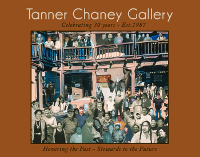LAURA BUGARINI
and
HECTOR GALLEGOS, Jr.
Mata Ortiz Potters
Laura Bugarini
Hector and Laura are each well known in their own rights for their distinctive styles. Together, this award-winning team of two extraordinary potters make some of the most unique, imaginative pots.
Laura is one of the youngest second-generation potters, beginning as a potter in the mid-1990's at age 14. Her inspiration and encouragement came from the Quezada family, where at the time she was working as a housekeeper. What she developed was a meticulous, incredibly demanding style of strokes and dots so tiny they number in the thousands. They fill the areas between delicate spaced rings that encircle her pottery, like the longitudinal lines encircling the earth.
Within just a few years, Laura's style was bringing her great success, but with that success also came copy cat potters looking to profit on Laura's hard work. They stole her style, put it on their pots and signed their names. Seeing this happen stole Laura's own enthusiasm for potting and she quit, moved to Denver and returned to housekeeping.
The village and the pottery making called to Laura, though, and in the late 1990's she returned to Mata Ortiz, where she married Hector Gallegos Jr.
Hector Gallegos, Jr.
Hector is also from the group of second-generation potters who have really played a role in the diversity of Mata Ortiz. From the start, Hector's pots have included animals. In the beginning, his paintings were of dozens of small animals connected one to another with “animal tracks” that encircled and covered the surface of the pot. Today, his pots usually depict desert scenes with animals and birds, but Hector now is considered one of the best “sgraffito” (etched) artists in Mata Ortiz.
Sgraffito is the process of creating a picture by scraping away clay. This technique takes enormous skill, patience and care. Especially for the scenes Hector creates, which are jammed with detailed flora and fauna. One slip of the hand and the whole pot can be ruined.
Hector prefers to work with white clay, which is the hardest to come by, the least elastic, and so the hardest to work. But it's also the best contrast to highlight Hector's detailed scenes, painted in the thinnest of black lines. Back in the day, he would sometimes spatter red paint over the surface to give his pots a happy, folk art appearance. Now, he adds a bit of color in his desert scenes with the same effect: the surprise of color within the black and white makes you smile.
Some of the best surprises come when Hector and Laura collaborate: Laura with her thousands of tiny strokes, Hector with his intricate scenes and sgraffito. Together, their skills, talent and imaginations create scenes that challenge what we think is possible in painting on clay. One of their collaborative pieces won the Galardon, the Grand Prize at the September 2012 Mata Ortiz Concursos.

